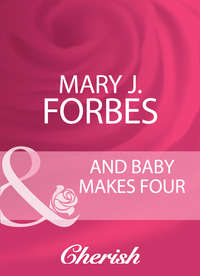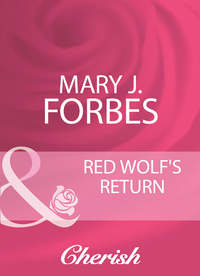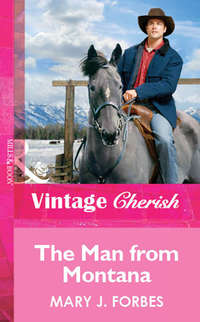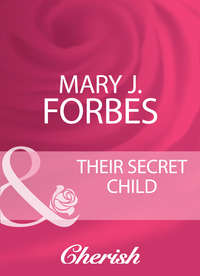
Полная версия
A Forever Family
What she felt here couldn’t compare to those days.
Why this strange house?
She saw herself curled on one of the two love seats bracketing the octagon coffee table. Browsing one of the magazines scattered there. Dreamily admiring the big African violet. Touching the child’s tea set…
Her heart sank into its battered furrows. Had fate been kinder, had life taken a different route, toy trucks and trains might have covered her coffee table….
Oh, Timmy, my sweet little baby.
Fool. You’ve got to stop dreaming.
Ah, but she’d always been a dreamer. Marriage, kids, a house with a garden… But not in this house. Still, she couldn’t shake the feeling of rightness.
An illusion, that’s all. A lovely, horrible illusion.
She had to get away before the fantasies overwhelmed her. She could not work here. Not for Michael Rowan, who muddled her common sense. And not in a place that had home written everywhere she looked. No matter how, she’d find an office job—or wash dishes, scrub floors, flip burgers—anything but milk cows for a man who had the capability of holding her elusive hopes in the palm of his hand.
Shouldering regret, she walked into the kitchen and set the check on the corner of the oak table. Seconds later she stood outside, shoving her feet into her wearied sandals. Already, she could feel the jerk of the old Chevy’s tires rumbling off Rowan land.
She jogged down the stoop.
His leather loafers waited in the grass.
She walked past them.
Halfway down the flagstone walk, she stopped, looked back, sighed.
Ah, shoot.
She’d always been a mark for brooding men.
Michael dialed Cliff Barnette’s number. Prayed his Realtor had what he wanted. He wasn’t crazy about Cliff handling the sale of the estate, but the man was Blue Springs’ best.
Barnette picked up on the first ring.
“It’s Michael Rowan.”
“Hey there, Doctor Michael,” the Realtor crooned—as if he and Michael were beer-chugging buddies. “We got some bad news. That fellow who was ready to sign the deal this morning backed out a half hour ago. Couldn’t get the loan, apparently. Sorry, guy, but it looks like we’re back to the drawing board. Don’t be disgruntled, though, it’s only been a few months. Big place like yours takes a little doing.”
“Yeah.” Michael rested an elbow on the desk and massaged his forehead. Just what he needed. Another dose of the long haul. He was so tired of this selling business.
Oh, Leigh. Why’d you have to go and die?
He jerked upright. It wasn’t his sister’s fault that rig had lost its brakes on a corner and catapulted into her husband’s rattletrap pickup. It had been Michael’s inadequacy that didn’t save her.
And the limitations of a small-town hospital.
“You there, pal?” the voice in his ear boomed.
“Yeah.” He scrubbed a hand down his face. “Do what you can, Cliff. Maybe something will come up in the next week or so.”
“I plan on zipping a couple ads into the southern regions. Los Angeles and the like.” He chuckled. “See if we can draw some interest from those rich gentlemen around Tinseltown who think farming is a hobby or a lark.”
“Fine. Let me know if anything looks favorable.”
“Will do.”
Michael set the receiver back in its cradle. What if it took years to sell the place? He wasn’t cut out to milk cows, plow fields, or ride fence lines. That had been his twin’s niche, her dream. Like a point of proof, she’d chosen to live on the land where they’d been raised by their grandparents. When their grandmother retired, Leigh had gone after her second goal and married Bob, a local man. She’d settled in this very house and had attained a stalwart status in the dairy industry.
They had been a threesome of heirs to the land, with Michael as the silent partner.
He wanted to laugh at the appalling irony. Now, Leigh and Bob were the silent ones. Eternally.
And Jenni. God, what to do about their six-year-old daughter? How to resume his career, run this place, and raise her? He knew nothing of kids. Hell, he could barely face the tyke most days. When her whimpers came in the night…
He set a thumb and forefinger against his tired eyes. He had to get rid of Rowan Dairy. Get rid of the memories. Take Jen away—away from the only home she knew.
Forget about easing her into her loss. He wanted to simply move them both back to his town house in Blue Springs—like he’d done right after Leigh’s death.
“Why can’t we live at the farm, Uncle M.? Why do we have to stay in your town house?”
Okay, so he’d keep them here. But, dammit, the longer they stayed in this house, the harder it would be to leave later.
Still, Jenni required adjustment time. Before he removed her from the community—a hundred miles south—to Seattle. Where he had a chance as partner in a flourishing clinic, and where, God help him, first-class E.R.s could handle the worst possible cases. Like Leigh’s.
He would not chance Jenni’s future to the strictures of Blue Springs General.
He kneaded the kink at his nape.
He owed the tyke a few more weeks.
Here.
Until he found the courage to explain his plans.
If the farm fell into a non-productive state in the meantime, so be it. Jen needed this place. And someone holding her in the night when the scary dreams invaded. She needed coddling.
Mothering.
Michael opened the door and looked through the archway. The house was empty. She was gone, the woman. Wearily, he stood. Could he blame her if she ran off with his money, never to return? He’d been rude, blunt and downright miserable.
Walking through the house, he snorted softly. He could well imagine her manipulating those “cud-chewers,” and her about as big around as his thumb. A little scrawny, but…pretty, in an artsy, folksy sort of style. Pretty legs, pretty lips.
On the kitchen table he found his check. Damn. She had run out, but not with his money. Sighing, he tucked the paper in a pocket. In the mudroom, he pulled on a pair of fatigued Apaches. Might as well check the barnyard before he headed back into town.
The screen door squawked when he pushed it open. He stepped onto the stoop and stared straight down at her squatted form a few feet away—cleaning his loafers with a tissue. Near her elbow, the garden hose leaked into the grass.
“Don’t get used to this, Doc,” she said without looking up. “I had nothing to do at the moment.”
Michael came down the steps. Her ridiculously long earrings swayed with each stroke of her fine-fingered hands.
“Great footwear,” she said, checking out his boots. “Next time you’re down around the barns I’d suggest you wear them instead. They’re more suited to what’s left behind.”
He combated a grin. He had to admit she was a delightful little thing. “Behind what?”
“Cows. Horses. Any critter on four legs.”
This time he gruffed a chuckle.
“Oops, that’s not a sense of humor I hear, is it?” She gave him a scamplike look, reached for the hose, and washed her hands. Done, she climbed to her feet.
“Now,” she said, shaking wet hands like a cat with dripping paws. “You asked me to wait. Why?”
Her eyes were blue. A remarkable blue. “I wanted to let you know the employee quarters will be vacant after tomorrow.”
“Where are they?”
He inclined his head toward a tiny whitewashed cabin—once the old homestead place—huddled among the trees.
She examined the dwelling. Something akin to guilt moved through him. The place was cramped, run-down. He hadn’t been inside it since college. Who knew what lurked within its walls?
“Well,” she said after what felt like a full minute. “My moving should make my little brother happy.”
“Oh?” Michael couldn’t hide his interest.
She eyed the cabin with a mixture of sadness and longing. “He’s dying to live on his own. This’ll put him in his glory.”
Her lashes were as long as pine needles. And black…like her eyebrows.
He couldn’t describe the color of her cropped hair; it oscillated between brown and blond. At times, the pale gold streaks in it seemed absurd. He wondered if she was a regular at some beauty salon. Unlikely, considering her surprise at his pay.
“What’s your brother do?” he asked, just to keep her within arm’s reach. That shook him. Women were usually a gamble he avoided.
“He works at Video Stop in town, but he’s attending the University of Washington in the fall.” Proud grin. Eyes lighting. Face like a candle in the dark. “He won’t like having to do his own cooking and cleaning, if you know what I mean.”
He knew exactly what she meant. She might have summed up his own solitary existence. It set his stomach on a low-tide roll. Eating another meal alone tonight, he would remember days he might have sat with Leigh and Bob and Jenni, laughing, joking, sharing conversation—sharing family…God, would the guilt for the should haves never stop?
She regarded him for a moment. “You okay, Doctor?”
“I’m fine.” He dug the check from his shirt pocket. “I think you forgot this.”
“Guess I did.” She smiled sheepishly and looked at the cabin. “If it’s okay with you, I’ll move in on Sunday.”
“I’ll make sure it’s ready.” He’d hire a cleaning woman tomorrow. “Well, then.” He shifted his feet, unwilling to let her go. Unsure why he couldn’t. “That’s it.”
“Great.” She smoothed the check. “I’ll see you in a couple days.”
“It’s secluded out here,” he blurted. “You’ll be alone most of the time. Will that be a problem?”
“My brother is—”
“Yes, I know, but what of others in your family?”
She stiffened. “There’s only my brother.”
“No children? Husband?” None of your concern, Rowan. He saw it in her expression, her posture. She stood as rigid as the trees behind them.
“No.” Her tone cooled. “Does that pose a problem?”
“None. I thought maybe…” Your husband got fired and you were forced to take the first thing that came along.
“I got laid off, Doctor. I didn’t quit or get fired, if that’s what you’re wondering.”
“Not at all,” he said, unnerved she’d nailed his suspicions. “I’m surprised this is the only job available.” Terrific. Not just nosy, but a pompous jerk to boot. A genuine winner, Rowan.
“Good jobs are at an all-time low around town,” she replied. The tautness in her words warned him to back off.
He didn’t. “But this—”
“It pays.” She fluttered the check. “That’s what counts.”
He let it go. Here he was, offering a woman of her apparent intelligence and, okay, looks, the tugboat instead of the cruise ship. Yes, he knew three thousand inhabitants populated Blue Springs—with dairies, fruit growers, farms and a couple of small ranches shaping the community at large. He simply didn’t like the way the odds fell out of her favor.
“Sorry,” he said, uneasy because she made him feel…something when he’d rather keep his heart walled up.
Her Pacific-colored eyes staked him. “I can do the job.”
“I’ve no doubt whatsoever that you can.” He estimated that the top of her head barely skimmed his Adam’s apple. A little dip and his chin could rest on her hair. “I simply want to know,” he said, irked by the sudden heated pool in his nether quarters, “who I’ve got wandering around this establishment. It’s an expensive operation and I wouldn’t want anything adverse happening because of incompetence.”
She snatched up her knapsack. “I’m not a liar.”
“I didn’t say you were.”
“You were implying it.”
The fire deserted him. “Ms. McKay—”
“Shanna.”
“Shanna, then. Please, understand. I’m a surgeon. My hours are bizarre most days. That’s why who I hire for this job must be someone I can trust. Implicitly.”
Her expression gentled. Sunshine silvered the danglers in her ears. “Well, Doctor,” she said softly. “You can trust me. Implicitly.”
She turned and walked to her truck, leaving him to vie with his memories—and worries about his future—once more.
Chapter Two
“Dangit,” she muttered, clunking her head a second time under the kitchen sink. She’d tried to tighten the drainpipe for a good half hour and still it leaked like a sieve.
At least the cabin was spotless. The kitchen appliances gleamed, and the bathroom fixtures smelled of Lysol. Even the aged planked floor had a coat of wax. And the mattress in the main bedroom was new—a crucial detail when her mornings began at four.
All she required was for him to buy an elbow seal.
Clambering to her feet, she stretched a twinge from the small of her back. Ten-fifteen. The day nearly half gone and the boxes she’d piled into the Chevy’s bed some seven hours ago with a grousing Jason at her heels remained unpacked.
She swiped her stinging eyes. Her baby bro. Nineteen years they had shared. She’d changed his diapers, sent him to first grade, watched him walk across the stage at his high-school graduation. Ah, Jase. You’ll go places, dear heart.
Through a grove of fir, she caught sight of the sorrel stallion. Soldat D’Anton—Soldier of Old—according to Oliver, the barn cleaner, whom she’d met this morning. The name suited the animal.
For a moment, he stood still, chin held high, pin ears erect, tail winging the breeze. Then he pawed the earth and shook his big head.
“Me-o mi-o, but you are some piece of work, buddy.”
Like his owner. Arrogant, strong-headed and extravagantly stunning.
Movement on the cabin’s path caught her eye. A calico cat, its tail flagpole-straight, strutted in front of a little girl. Five or six, the child clutched her yellow daisy-dotted skirt, swishing it side to side as she walked. Dark curls framed rosy cheeks and bounced on tanned shoulders. Shanna smiled. Lost to her own will-o’-the-wisps, this little one.
Shanna’s smile faded. Where was the girl’s mother?
The doctor’s Cherokee sat parked in the driveway next to the farmhouse. Had he brought the child with him?
She was outside in seconds, walking down the path toward the pair. “Hey, kitty.” Shanna hunkered down, offering a hand to the feline. The animal sniffed her fingertips daintily.
Dropping her skirt, the girl pressed her knuckles together and approached Shanna one cautious step at a time. Through the evergreen boughs above, sunlight sifted gold sugar onto the girl’s curls.
The cat butted its sleek mottled head against Shanna’s knee and purred.
“Her name is Silly.”
As if surprised to see someone else, Shanna looked up. “Silly, hm?”
“Uh-huh.” A small giggle escaped. “It was s’pposed to be Sally. But when I was little I couldn’t say Sally. Isn’t that silly?” More giggles escaped. “Ooh.” She clamped a hand over her mouth.
Shanna’s throat pinched. Her arms ached for the snuggle of a small cuddly body.
“Oh, stop it,” she muttered.
“Are you talking to yourself?” The child edged closer. Her fingers worried her skirt. Silly, purring like a tiny fine-tuned motor, plopped to the grass.
“Actually, I was telling Silly to stop being so noisy because she’ll scare the chickadees off.”
“Chick-a…?”
“Chickadees.” Shanna pointed up to the trees. “See those little birds with black caps on their heads?”
“Nooo…uh-hm.”
“They fly real fast. See, there goes one.”
A breathless little gasp. “Oh!” Round hazel eyes centered on Shanna, then back up to the trees. “Oh…oh, lookit! There’s another!”
“Cute, aren’t they?” Shanna watched the child. An adorable half-toothed grin plumped her freckled cheeks.
“Mmm-hmm.” Curls swung as she nodded and sidled closer. Their knees bumped. Elfin face serious, the child looked at the cat, which stared upward with its tail twitching. “Will Silly catch one?”
“I don’t think so. They’re too quick and smart. They know she’s here.”
Relief swept into the girl’s eyes. “Good. I don’t want the little birdies to die. My mommy and daddy died an’ it wasn’t nice.”
Shanna’s heart stumbled.
Of course. The accident. She’d read about it killing the doctor’s sister and her husband. When had it happened? April? No, March. Mid-March. Over three months ago. A freak accident that had left a child the lone survivor. This child.
The girl’s eyes filled.
“Aw, sweetie.” Shanna tucked the child to her side. Her cheek found soft warm curls smelling of sunshine and lemon shampoo. “Hey,” she said, swallowing back the lump behind her tongue. “I bet your name is Sally. That’s why you got Silly’s name mixed up.”
Another round of giggles. “Nuh-uh. My name’s Jenni.”
Shanna offered a palm. “Well, hello, Jenni. I’m Shanna.”
Little fingers skimmed bigger ones. “You’re pretty.” The half-toothed grin. “Know what?”
“Nope.”
“I’m six.”
Shanna whistled mock surprise. “Whoa, that’s getting old.” Had the birthday been with her parents? Shanna prayed it had.
“Nuh-uh, it’s not.” Jenni hunched a shoulder to her ear, smiling shyly. “Grammy is old. She’s got white hair an’ lots and lots of wrinkles…right here.” Two fingers bracketed her eyes.
Shanna laughed. It felt good. “Is she here with you?”
“No, just Uncle M. He looks after me most. Grammy looks after me when he has to work at the clinic.”
Shanna envisioned Estelle. Kind heart. Soft, plump arms. A nurturer, the way Meredith, Shanna’s mother, had never been.
“Sometimes,” the child went on, “like when Grammy’s in California, I go to the day care.”
“Where’s Uncle M. now?”
Jenni pointed to the house. “Home. It’s Sunday. Sometimes he doesn’t work Sunday. Right now he’s doing ’portant stuff upstairs.”
What stuff kept the doctor too busy to keep an eye on his niece? Shanna looked to where the stallion grazed in the paddock.
He bites.
A shudder chased up her spine. Had the cat headed toward the barnyard, where would that have left Jenni? Crawling through the fence? Walking up to a twelve-hundred-pound beast who gouged out a strip of earth with one slash of his hoof?
Shanna pushed to her feet. “Let’s see if your uncle needs any help.” Or a wake-up call.
“C’mon, Silly,” Jenni sang to the calico. “I’m going back to the house now.”
Curling her little palm around two of Shanna’s fingers, she walked up the path, cat in tow.
“Uncle Michael doesn’t like me bothering him,” Jenni volunteered.
“Did he say so?”
“No.” She took a little skip. “But I know.”
“How?”
“He looks at me a lot.”
“Maybe he thinks you’re cute.”
Jenni shook her head, jiggling her sun-dappled curls. “Uh-uh. He never smiles. And sometimes—” she touched the bridge of her button-nose “—he gets two splits here.”
Shanna understood. Grief accounted for the pain in those gray eyes and that unsmiling mouth. But it didn’t explain Michael Rowan’s apparent disregard for his niece. Not for a second would she have left Jason unattended at this age. Or her darling Timmy, had he lived. Jenni ran ahead and squatted in front of a confusion of marigolds growing along the stone walkway. Someone obviously loved the sunny-faced plants. “This one’s the prettiest,” she said, plucking a fat bloom. “Do you like it?”
“Very much. Want to put it in some water?”
The child shook her head shyly. “In your hair.”
“My hair?” With a self-conscious hand, Shanna pushed a thick chin-length clump behind her ear. “Why?”
“’Cause Octavia wears flowers in her hair. They make her happy.” Jenni tugged Shanna’s hand. “Bend down.” Little fingers whispered like leaves in a breeze at her temple. “Mommy told me Octavia means eight.”
“Yes, it does.”
“Octavia’s my dolly. Her hair’s the same as yours…kinda messy and all over the place. Tavia—that’s what I call her when she’s good—has a bad time combing it. Do you?”
Shanna kept a sober expression. “Sometimes. Especially in the morning after I wake up.”
The little girl stepped back to survey her handiwork. “Tavia doesn’t like getting up.”
Tavia or Jenni? Reverse role playing was common among children experiencing severe trauma. After her mother left, Shanna had done it herself—heaping daily problems on a fictional friend. Hers had been Anne Frank. At school, she’d read the girl’s diary and followed Anne’s resigned, courageous year concealed in a narrow back annex of the now famous house on Amsterdam’s Prinsengracht. Shanna had been Anne’s age when Meredith left.
Anne, Shanna’s partner in austerity in a small notebook.
The calico purred around their ankles. “See, even Silly thinks it’s nice.”
There on the stone walkway, with the smell of a sun-warmed child saturating her senses, Shanna leaned forward and pressed a kiss to Jenni’s brow. “You’re nice.”
The child stiffened.
“What is it, sweetie?”
Jenni’s button lip quivered. “I want to go in now.” Whirling, she scrambled up the steps and fled into the house.
Shanna stared at the door. She should have kept her heart wrapped completely in its cool detached cocoon—the one self-preservation had driven her to create nine years ago. The one she never allowed to chip or splinter for fear of what could happen.
Like now.
Ten minutes and she’d formed a sweet covenant with a sad little girl. One kiss and she’d ruined it. The child hadn’t been ready—and Shanna too anxious. “It’ll serve you right if she never comes near you again,” she muttered.
Heart heavy, she rose. She had to set things right.
But how did one go about trying to explain to a six-year-old that a peck on the head meant nothing more than thank you? That it didn’t mean a stranger wanted to replace her mother?
Michael flung a second stack of Leigh’s jeans into a large cardboard box sitting outside the door of the walk-in closet. A month after the accident, he had removed his brother-in-law’s wardrobe from this same closet, heaped the clothes into his truck and driven to the Lady of Lourdes church.
Easy street compared to this.
This was ugly.
A sacrilege.
And the reason nearly three months had elapsed before he’d dared enter the bedroom a second time.
He hadn’t been able to touch her things. Hadn’t been able to look at them without the ache in his gut doubling him over.
She wasn’t supposed to be dead, his only sibling, his twin. Here is where she belonged. Laughing, her rich voice invading the rooms. Giving Bob those foxy looks—
“But why, Uncle Michael?”
And answering her daughter’s questions about this horrible after-death ritual.
“Uncle Michael?” His niece’s tiny voice quivered.
“I’ve already told you, Jen. She won’t need them any more.”
“Mommy’s never coming back, is she?”
“No. She’s not.”
He glanced out of the walk-in closet. Leigh’s daughter stood near the packing box, clutching her shabby doll to her chest. The large L-shaped bedroom with its pine furniture and its queen bed spanned out behind her. In the toe of the L was a vanity and chair. Soon, he’d eradicate all of it. Brushes, makeup—
“Ever?”
One word, filled with confusion, trepidation and disbelief. In his twelve years at the hospital he’d heard those emotions often, but he recalled the first time best. When he was ten and they’d brought his parents home from Canada, broken and burned and no longer alive. Leigh had asked the same question of their grandmother, in this very room. He’d stood next to his sister, their hands clasped tight, and Katherine had shaken her head and walked out. Leigh had started crying. In his brain, the sound shattered him once more. And once more he felt the cool welcome of loathing what he could not change.
Jenni stared at the box. Leigh’s silver, pearl-buttoned shirt draped over a flap, in a beam of sunlight.
“No,” he said brutally, grief molding his anger into an invisible defensive sword.
The child sniffed and buried her face in the doll’s drab hair. He wanted to go to her, apologize for his tone, try and—







